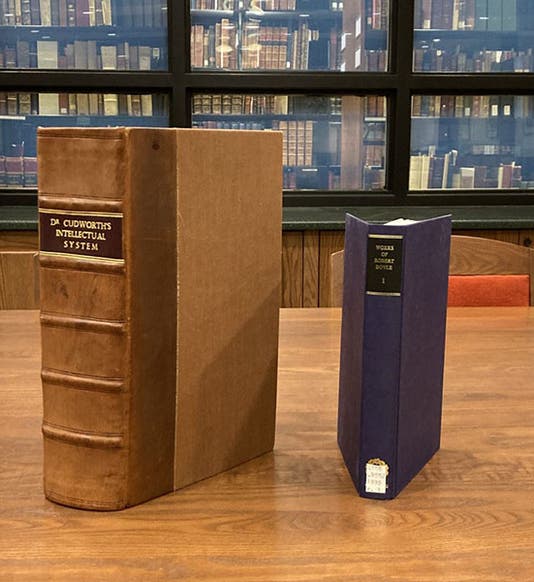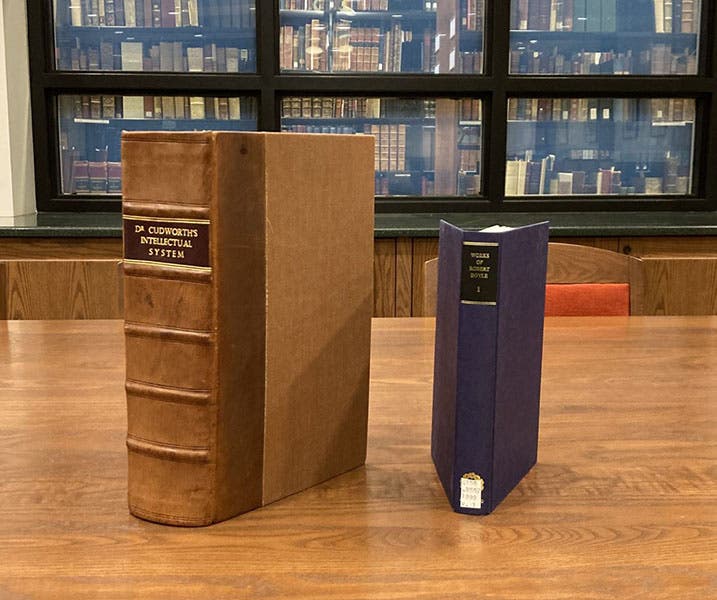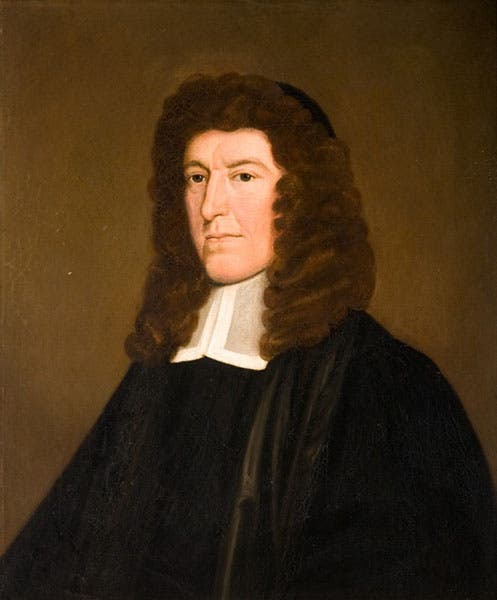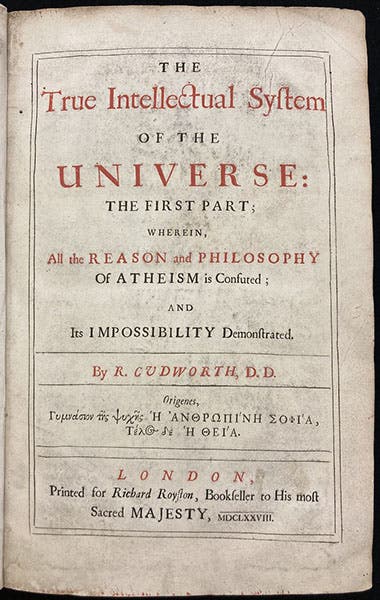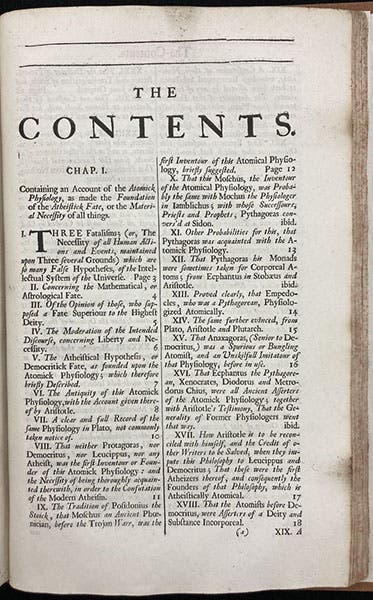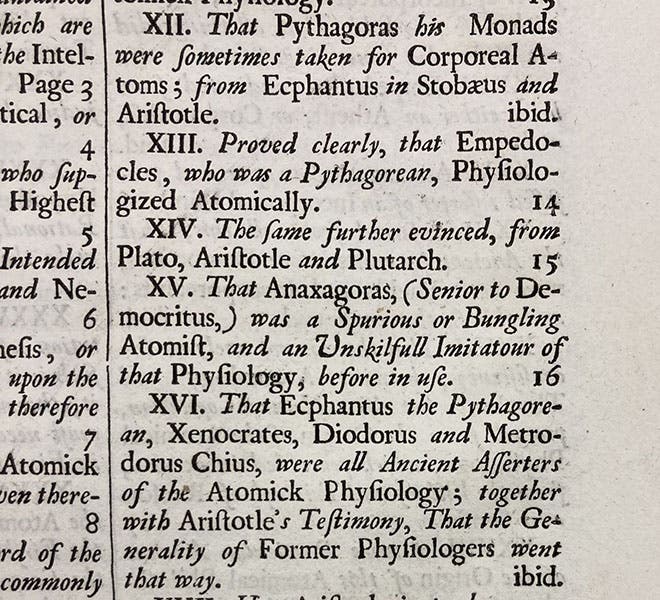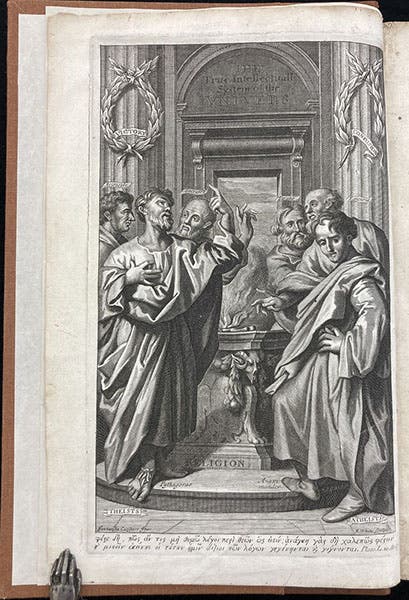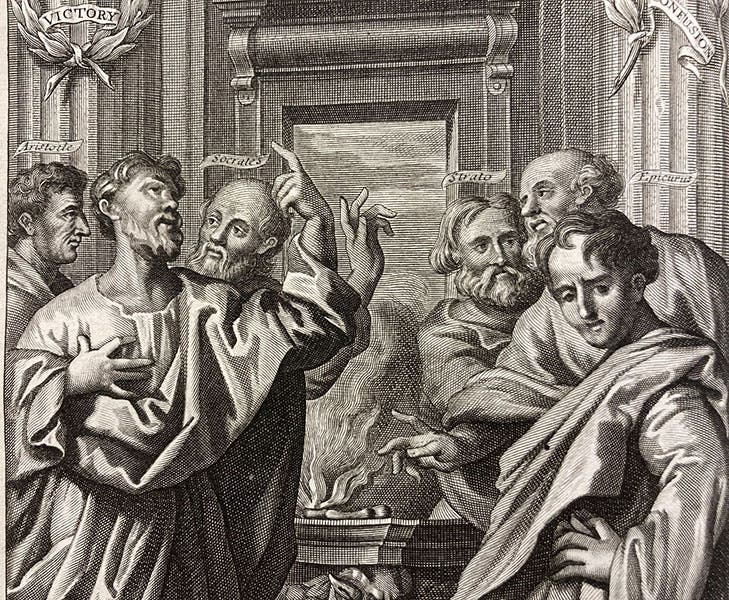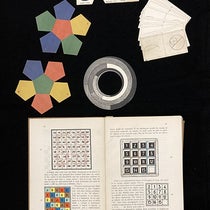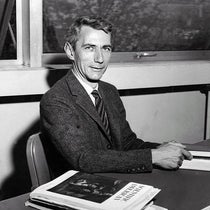Scientist of the Day - Ralph Cudworth
Ralph Cudworth, an English philosopher and divine, died June 26, 1688, at the age of about 81. He was a Cambridge man down to his shoe-buckles, having received his MA at Emmanuel College, Cambridge, then spending 9 years as a fellow at Clare Hall, and finally presiding as master at Christ's College, all over a 50-year period. He was also a leader, with Henry More, of the Cambridge Platonists, a group at Cambridge that were attracted by the new mechanical philosophy of René Descartes, but resisted the Cartesian inclination to leave God out of the normal routine of running the universe. The Cambridge Platonists were extremely devout and, in different ways, sought to combat the tendency toward atheism of a philosophy that allowed atoms or corpuscles to do their own thing. They sought to return both Providence and Free Will to a mechanical universe.
Cudworth's own contribution was a massive tome called The True Intellectual System of the Universe: The First Part; wherein, All the Reason and Philosophy of Atheism is Confuted; and its Impossibility Demonstrated, published in 1678. As you can see in the first image, where I photographed our copy standing on a library table, next to a normal book (which happens to be the first volume of the modern edition of Robert Boyle's works), this is a formidable piece of scholarship, and as the title tells us, this was only the first part of what was intended to be a three-volume work. In some ways, we are not unhappy that time ran out on Master Cudworth.
The book contains 899 large quarto pages of text, followed by a table of contents that occupies 41 unnumbered leaves, or 82 pages. The Table of Contents is so detailed that it needs its own table of contents, unfortunately not provided. But it is useful, because a glance at just a few pages tells us what Cudworth was up to (fourth and fifth images). The philosophy of the ancient atomists, such as Democritus, Epicurus, and (in Cudworth's mind), the Ionian Anaximander, was indeed atheistic, in that it conceived of a world of atoms, swirling about at random, with no master plan in evidence. But Cudworth argues that there was an earlier form of atomism that was "Godly," where atoms were created by God and endowed with motion, and where Divine Providence still reigned. Democritus and his followers had perverted that Godly atomism and made it atheistical. But others, such as Aristotle and Socrates, subscribed to a form of atomism in which God was still in charge.
Cudworth listed four forms of atheism that he intended to combat and refute, which we will not get into, except to mention one in which Nature was imbued with sentience and self-knowledge, essentially assuming the role of God. Cudworth countered with a novel idea, that of "Plastic Nature." Plastic nature was God's agent in the world, an insentient, unreflective power that was responsible for the day-to-day running of the universe, providing the basic laws that matter obeys, so that God doesn't have to concern himself with the mundane. Plastic nature makes plants grow and rivers run downhill, and when it goes astray (since it is a blind force), it grows animals in rocks, thus accounting for fossils, at a time when fossils were unaccounted for. It was probably Cudworth’s most original contribution to the ongoing debate about the tendency toward atheism inherent in the mechanical philosophy. But I cannot say that plastic nature had a long-lasting influence, since its most useful application disappeared when other explanations for fossils appeared almost simultaneously with the work of Nicolaus Steno and Robert Hooke
The True Intellectual System of the Universe was not exactly a milestone of the scientific revolution, except physically (perhaps more millstone than milestone), although Isaac Newton seems to have admired Cudworth's industry. But it does have a splendid frontispiece, in which three ancient theists (Aristotle, Pythagoras, Socrates) face off against three atheists (Strato, Anaximander, Epicurus) (sixth and seventh images). The outcome seems to be undecided.
William B. Ashworth, Jr., Consultant for the History of Science, Linda Hall Library and Associate Professor emeritus, Department of History, University of Missouri-Kansas City. Comments or corrections are welcome; please direct to ashworthw@umkc.edu.

